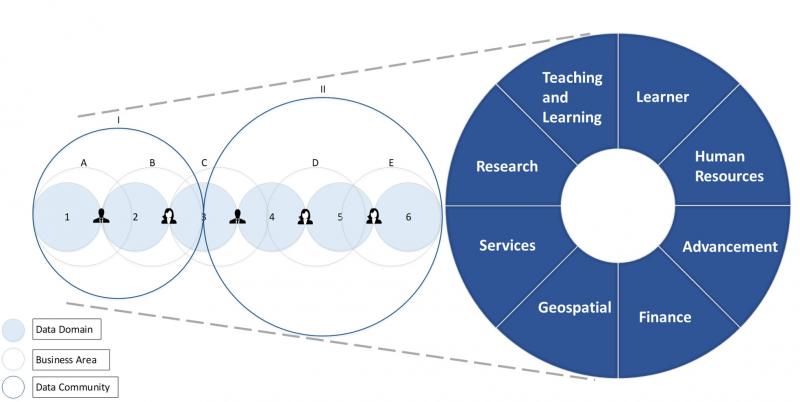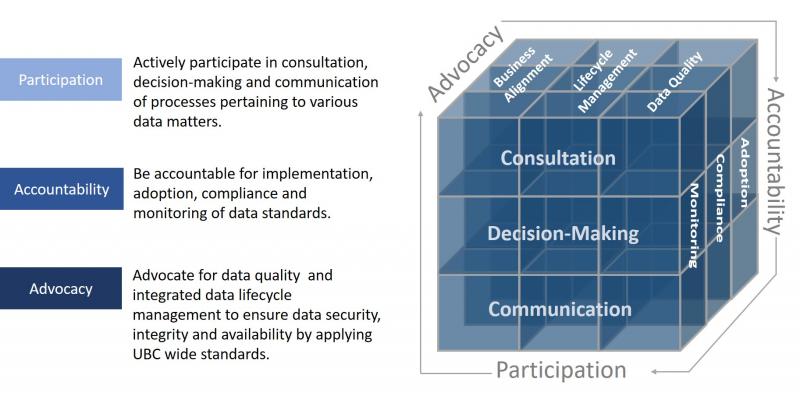Data Stewards are University business officials that have direct operational-level responsibility for the management of one or more types of Institutional data, and have the authority to make decisions about the data under their purview. Responsibility over operational activities can be delegated but ultimately Data Stewards are accountable. Data Stewards are assigned by Data Trustees from their respective Data Domain, and identified by role.
Data Stewards in Context
To manage risk, it is best practice to adopt a representative form of Data Governance to ensure alignment with the community's needs. As a result, a vital component of a Data Governance program is Data Stewardship.
Data Stewardship formalizes accountability for managing information resources on behalf of others and for the best interests of the University. Data Stewardship is crucial to the success of Data Governance and in turn, data management.
By having representative Data Stewards and a set of procedures that require Data Stewards to be consulted on decisions, will ensure that decisions are based on knowledge and are made in everyone's best interest. The combination of designated Stewards, processes, and a mission to manage data in the best interests of all leads to improved data quality, which in turn facilitates competitive advantage and regulatory compliance for the University.
Data Steward Representation & Selection
The organization of UBC’s data landscape into various data communities creates an integrated and collaborative solution by allowing stakeholders with vested interests use a common set of data elements and come together for decision making. The simplest way to link a Data Steward to data is through a data domain. Data communities are classified by specific high-level functional areas for the purpose of assigning accountability and responsibilities over data.

Data Stewardship Framework
Data Stewards manage data assets on behalf of others and in the best interests of the University. They represent the interests of all stakeholders and must take an enterprise perspective to ensure enterprise data is of high quality and can be used effectively. UBC's Data Stewardship framework defines how this can be achieved through the following:

Roles & Responsbilities
The following is a non-exhaustive list of generalized tasks and responsibilities that Data Stewards may perform as part of their participation. The tasks include not only what the Data Stewards do individually, but also what they may perform as a group, based on shared interests and impacts. In addition, it should be noted that not all Data Stewards will share the same responsibilites.
- Participating in processes and standards definition
- Making tactical decisions
- Approving data access requests
- Addressing data improvement and issue resolution
- Ensuring that data decisions are communicated and users understand impacts of the decisions
- Identifying and defining key business terms
- Adopting data governance standards and processes
- Taking accountablility for data governance execution in functional area
- Complying with legislated requirements for data privacy and security
- Monitoring data for compliance with data standards
- Planning for the lifecycle management of data from collection to disposition
- Reporting data quality issues